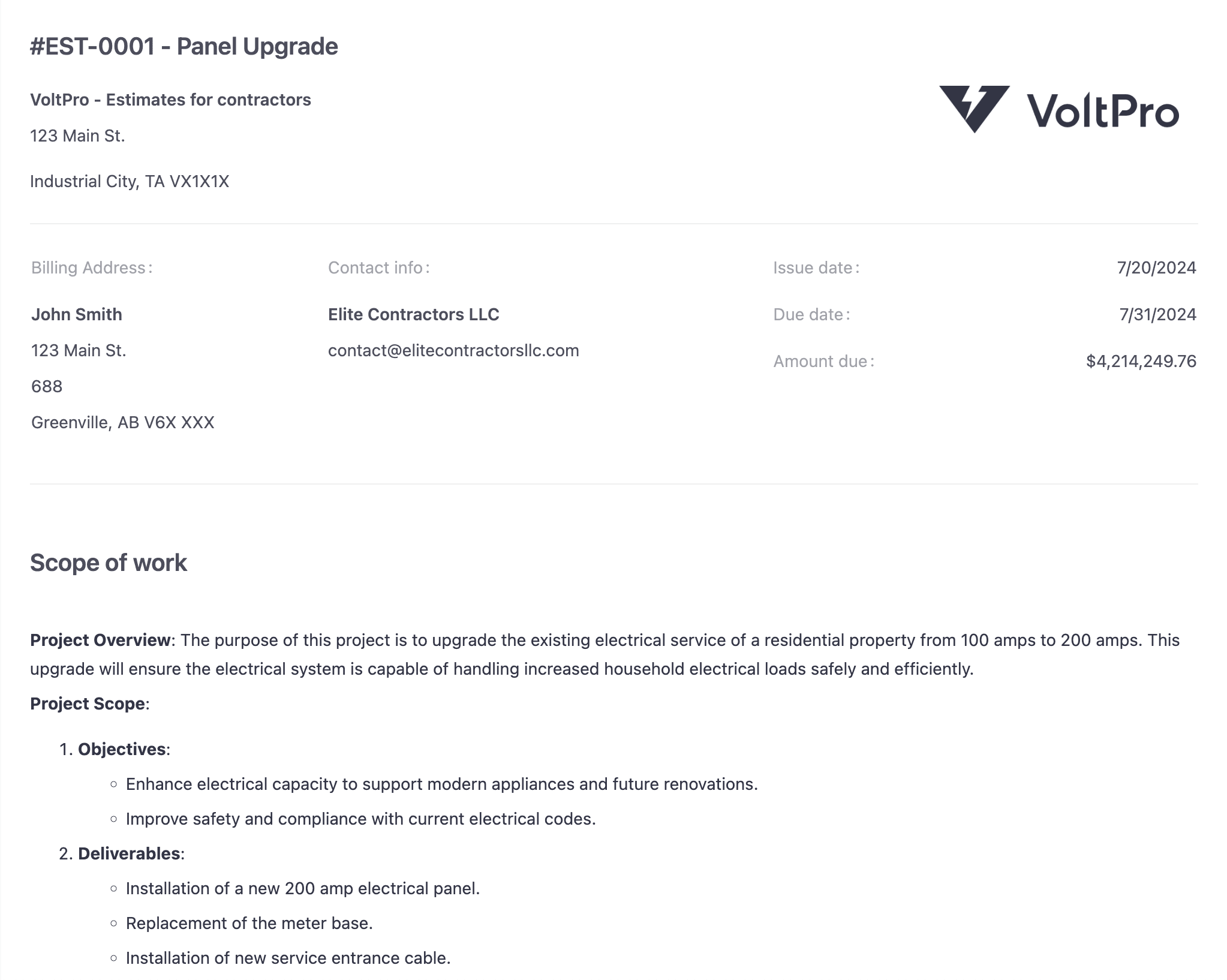Contractor Estimates vs Quotes: Understanding the Key Differences
From ballpark to binding, build better estimates and quotes for your business
Feb 28, 2024

As a contractor, clear communication with your clients is essential for successful projects and a thriving business. Two terms that often cause confusion are "estimates" and "quotes." While they might seem interchangeable, understanding their differences is crucial for managing client expectations and protecting your bottom line. Let's dive into the distinctions and why they matter.
What is an Estimate?
An estimate is an idea of the cost for a project based on the information available at the time. It's typically used in the early stages of a project when all details aren't yet known and usually doesn’t require formal approval from your customers.
Key characteristics of estimates:
Flexibility: Can change as more information becomes available
Not binding: Generally not considered a legal agreement
Approximation: Uses phrases like "approximately" or "around"
Range: Often provided as a range rather than a fixed number
Example: You’re asked to install new lighting for a client’s office but haven't seen the space yet. Based on similar jobs, you provide an estimate of $1,500–$2,000, noting that this could change after an on-site inspection.
Best practice: Always provide your estimate in written form (physical or online), clearly labeled as an "Estimate," and include all relevant details and assumptions in your scope of work. Be as detailed as possible and think about how to accurately markup material costs and labor. Review historical material, labor, and project data to help make your estimates more accurate in the future.
What is a Quote?
A quote, also known as a fixed-price quote, is a formal offer to complete a specific scope of work at a stated price within a defined timeframe. Quotes, once accepted, typically form a legally binding contract. This means you're obligated to complete the work for the stated price, regardless of unexpected costs.
Key characteristics of quotes:
Specific: Based on detailed project information
Binding: Often considered a legal agreement if accepted
Fixed price: Provides an exact figure, not a range
Time-limited: Usually valid for a specified period
Example: After inspecting the site and finalizing the materials, you provide a formal quote for $1,850, which will cover all labor, materials, and taxes. This is a fixed price, meaning you’re obligated to complete the work at that amount, even if costs fluctuate.
Best practice: Always provide your quote in written form, clearly labeled as a "Quote," and include all specific details, terms, and conditions. Be aware that regional laws can vary. You should always consult local regulations and include terms in their quotes that address changes in scope or material cost increases. Include a clause in your quote about how scope changes will be handled.
General best practices
Be clear: Always specify in writing whether you're providing an estimate or a quote.
Include contingencies: For complex projects, consider including a contingency percentage in your written estimate to cover unexpected costs.
Set expiration dates: Especially for quotes, specify in writing how long the price is valid.
Document everything: Whether it's an estimate or a quote, always provide all details in written form to the client. This includes the scope of work, pricing, timelines, and any assumptions or conditions.
Using Technology to Your Advantage
Modern estimating software like VoltPro can help you create more accurate free contractor estimates and professional quotes. With VoltPro you can:
Track material costs in real-time
Calculate costing more precisely when creating estimates
Generate professional-looking documents for your customers
Convert estimates to invoices through a Quickbooks Online integration as projects progress
By leveraging technology, you can improve the accuracy of your estimates and the professionalism of your quotes, leading to better client relationships and more profitable projects.

Conclusion
Understanding the difference between estimates and quotes is crucial for managing client expectations and protecting your business. By being clear about which you're providing and documenting all details in writing, you can avoid misunderstandings and set your projects up for success.
Author

Perry Hoffman
Founder
